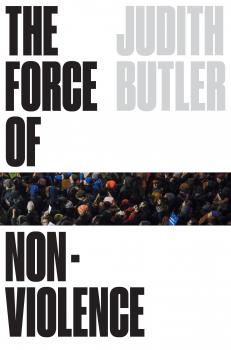ТОП просматриваемых книг сайта:
Judith Butler
Список книг автора Judith ButlerАннотация
Una obra capital, una referència ineludible per al moviment feminista Tot va començar amb Problemes de gènere, que ha esdevingut una obra capital per al moviment feminista. Amb aquest llibre Judith Butler, alhora brillant intel·lectual i activista militant, funda els estudis queer i marca el camí a tots els pensadors que posteriorment han fet estudis sobre el gènere. Poques obres de pensament han estat tan llegides, seguides i debatudes com aquesta en els darrers cinquanta anys.
Butler hi critica la idea essencialista segons la qual les identitats de gènere són immutables i estan arrelades en el cos, en la naturalesa o en una heterosexualitat normativa. Afirma que conceptes com <masculí> o <femení> no estan fixats biològicament sinó preestablerts culturalment. El gènere, per tant, no prové d'una realitat prèvia sinó que és el resultat d'una influència social reiterada.
Dialogant amb autors com Lacan, Freud, De Beauvoir o Foucault, i incorporant postulats avançats de l'antropologia, la psicologia o la filosofia, les idees recollides a Problemes de gènere continuen sorprenent per la seva originalitat i la seva voluntat subversiva.
Butler hi critica la idea essencialista segons la qual les identitats de gènere són immutables i estan arrelades en el cos, en la naturalesa o en una heterosexualitat normativa. Afirma que conceptes com <masculí> o <femení> no estan fixats biològicament sinó preestablerts culturalment. El gènere, per tant, no prové d'una realitat prèvia sinó que és el resultat d'una influència social reiterada.
Dialogant amb autors com Lacan, Freud, De Beauvoir o Foucault, i incorporant postulats avançats de l'antropologia, la psicologia o la filosofia, les idees recollides a Problemes de gènere continuen sorprenent per la seva originalitat i la seva voluntat subversiva.
Аннотация
Toward a Feminist Ethics of Nonviolence brings together major feminist thinkers to debate Cavarero’s call for a postural ethics of nonviolence and a sociality rooted in bodily interdependence. Toward a Feminist Ethics of Nonviolence brings together three major feminist thinkers—Adriana Cavarero, Judith Butler, and Bonnie Honig—to debate Cavarero’s call for a postural ethics of nonviolence. The book consists of three longer essays by Cavarero, Butler, and Honig, followed by shorter responses by a range of scholars that widen the dialogue, drawing on post-Marxism, Italian feminism, queer theory, and lesbian and gay politics. Together, the authors contest the boundaries of their common project for a pluralistic, heterogeneous, but urgent feminist ethics of nonviolence.
Аннотация
In their most impassioned and personal book to date, Judith Butler responds in this profound appraisal of post-9/11 America to the current US policies to wage perpetual war, and calls for a deeper understanding of how mourning and violence might instead inspire solidarity and a quest for global justice.
Аннотация
Analyzing the different frames through which we experience war, Butler calls for a reorientation of the Left In this urgent response to violence, racism and increasingly aggressive methods of coercion, Judith Butler explores the media’s portrayal of armed conflict, a process integral to how the West prosecutes its wars. In doing so, she calls for a reconceptualization of the left, one united in opposition and resistance to the illegitimate and arbitrary effects of interventionist military action.
Аннотация
Judith Butler’s new book shows how an ethic of nonviolence must be connected to a broader political struggle for social equality. Further, it argues that nonviolence is often misunderstood as a passive practice that emanates from a calm region of the soul, or as an individualist ethical relation to existing forms of power. But, in fact, nonviolence is an ethical position found in the midst of the political field. An aggressive form of nonviolence accepts that hostility is part of our psychic constitution, but values ambivalence as a way of checking the conversion of aggression into violence. One contemporary challenge to a politics of nonviolence points out that there is a difference of opinion on what counts as violence and nonviolence. The distinction between them can be mobilised in the service of ratifying the state’s monopoly on violence. Considering nonviolence as an ethical problem within a political philosophy requires a critique of individualism as well as an understanding of the psychosocial dimensions of violence. Butler draws upon Foucault, Fanon, Freud, and Benjamin to consider how the interdiction against violence fails to include lives regarded as ungrievable. By considering how ‘racial phantasms’ inform justifications of state and administrative violence, Butler tracks how violence is often attributed to those who are most severely exposed to its lethal effects. The struggle for nonviolence is found in movements for social transformation that reframe the grievability of lives in light of social equality and whose ethical claims follow from an insight into the interdependency of life as the basis of social and political equality.






